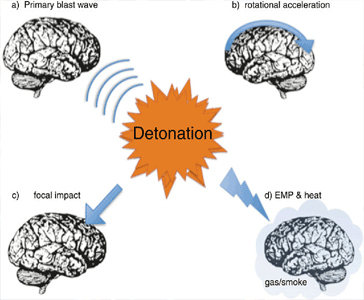BEST DOCTOR FOR NEUROTRAUMA TREATMENT IN MAX HOSPITAL VAISHALI, GHAZIABAD
Neurotrauma Doctors in Ghaziabad
A neurotrauma is a sudden injury to the head or spine. Concussions, traumatic brain injuries (TBI), skull fractures, spinal column fractures, and spinal cord injuries are all included (SCI). We are well equipped to treat all kind of Neurotrauma injuries.
Head Injury
A neurotrauma is a sudden injury to the head or spine. Concussions, traumatic brain injuries (TBI), skull fractures, spinal column fractures, and spinal cord injuries are all included (SCI). We are well equipped to treat all kind of Neurotrauma injuries.
Looking for a head injury specialist doctor (Neurotrauma doctor) for treatment? Look no further than Dr. Hrishikesh Chakrabartty! With extensive experience in Neurotrauma treatment, Dr. Chakrabartty can provide the expert care you need. Contact us today to schedule an appointment.
The following types of head trauma are treated by us:
- Concussion
- Mild traumatic brain injury
- TBI of moderate severity
- TBI with severe ramifications
- Abrasive brain injury (such as gunshot, stab wound)
- Fracture of the depressed skull
- Craniofacial injury
- Hematoma epidural
- Subdural hematoma, acute
- Subdural hematomas, both acute and chronic
- Subarachnoid hemorrhage caused by trauma
- Intracerebral hemorrhage/brain contusion caused by trauma
- Cerebrospinal fluid leak caused by trauma
- Pseudoaneurysm caused by trauma
- Cerebrovascular injury is severe.
Best Neurosurgeon for Head Injury treatment in Delhi NCR
Spinal Cord Injury
A fall, car accident, collisions with a moving object (such as a car), or an assault can also result in a spinal column (cervical, thoracic, or lumbosacral spine) or spinal cord injury. As with head injuries, there are numerous types of spine trauma, with varying degrees of severity. You could become weak or paralysed depending on what happened. We treat the following types of spine trauma on a regular basis:
- Injury to the spinal cord
- Injury to the craniocervical spine
- Injury to the cervical spine
- Injury to the thoracic spine
- Injury to the lumbosacral spine
- Dissociation of the atlanto-occiput
- C1 Jefferson fracture
- C2 Hangman’s fracture
- Dens (odontoid) fracture
- Traumatic central nervous system syndrome
- Aspects that perched/jumped
- Fracture due to compression (anterior wedge)
- Fracture with a burst
- Possible fracture
- Fracture-dislocation
- Traumatic pars deformity (spondylolysis)
- Spondylolisthesis due to trauma
- Intervertebral disc herniation caused by trauma
- Sacropelvic complex injury
- Injuries caused by hyperflexion
- Injuries caused by hyperextension
- Injury from compression
- Injuries caused by distraction
- Spinal ligament damage
Best Neurosurgeon for Spine Injury treatment in Vaishali
Diagnosis
Neurotrauma can occur on its own or in conjunction with other types of bodily injury. Most people who suffer serious head or spine injuries go to the hospital through the emergency room (ER) and do not schedule appointments or choose their surgeons. When you arrive at our ER, we immediately assess you for head or spine injury, often using a brain scan to provide us with a clear picture of your injuries. We typically use computed tomography (CT or CAT) scans of the head or spine, but we may also use magnetic resonance imaging (MRI).
Imaging scans are not always sufficient to determine what is going on in your brain or spine. To diagnose a we perform the following tests:
Detailed neurological examinations, which may include the Glasgow Coma Scale scoring system. This scale assists us in determining the severity of a brain injury by evaluating your ability to follow directions, blink your eyes, and move your arms and legs. We also consider whether you are speaking coherently. Each brain injury is unique, but in general, higher scores indicate milder injuries.
Formal neuropsychological testing and cognitive evaluations by a neuropsychologist
Physical and occupational therapist evaluations
Best Treatment for Neurotrauma in Delhi NCR
Treatment for Neurotrauma
The way we treat head and spine injuries is determined by a number of factors, including the type of injury and its severity. Mild injuries may only necessitate careful observation. More severe injuries may necessitate surgery. Even if the injury is minor, certain types of injuries necessitate surgery.
Depending on your needs, we also provide neuropsychological therapy, speech therapy, physical therapy, occupational therapy, and rehabilitation medicine at Mount Sinai.
The following surgical procedures are carried out by us:
- External ventricular drain installation
- Monitoring of intracranial pressure
- Monitoring of intracranial multimodality
- Installation of a lumbar drain
- The installation of a bedside subdural evacuating port system
- Subacute/chronic subdural hematoma burrhole
- Craniotomy for hematoma evacuation
- Craniectomy with decompression
- Cranioplasty
- Depressed skull fracture elevation
- The frontal sinus is cranialized.
- Repair of the craniofacial complex
- Repair of a traumatic cerebral spinal fluid leak
- Spine bracing from the outside
- Stabilization of the halo
- Spine fracture closed reduction/traction
- Spine fracture open reduction/treatment
- Decompression of the spine
- Spine stabilisation with instruments
- Spine instrumentation that is minimally invasive
- Fusion of the spine
- Sacropelvic spine instrumentation and fusion
- Kyphoplasty/vertebroplasty
Most people who sustain mild traumatic injuries to the head or spine recover fully. Even after a minor injury, such as a concussion, you may experience persistent symptoms. If this occurs, we will continue to work with you.


